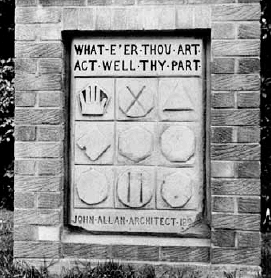It may be limited to the web ecosystem, but I've read a lot of those sentences lately, where each word is followed by a period.
Examples:
Oh. My. God.
Best. Job. Ever.
No. F***ing. Way.
Putting each word on its own hints the readers should give their full attention to each and every one of them.
Does this technique have a name? Can its origin be traced back to a book or article?

